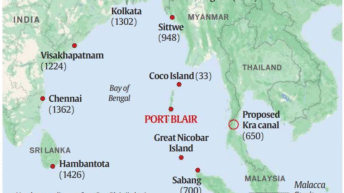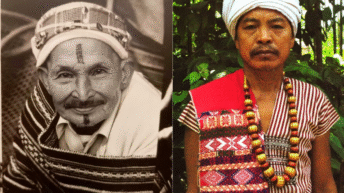|
Listen to article
Getting your Trinity Audio player ready...
|

Wrong message from Canada
The Indo-Canadian spat over the killing of Najjar, a Khalistani separatist leader in Canada, had created an impression that the Canadian government was non-serious in countering international terrorism despite formally agreeing to work in collaboration with other countries in uprooting terrorism in all of its manifestations.
Prime Minister Trudeau of Canada has found a strong vote bank among a million-odd Sikhs who migrated from India and finally settled down in Canada and other parts of the world.
Sikh Separatism
Some Sikh leaders had preached for a separate state of Punjab for the Sikhs when talks were going on for the partition of India and the declaration of India as a sovereign independent State. However, the partition of the province of Punjab into two with one larger part becoming Pakistan greatly weakened the voice of separatism among the Sikhs of the East Punjab meaning the Indian part of Punjab. The voice for separate Khalistani almost became dead until the rise of Bhindranwale.
Rise of Bhindranwale
Sikh religious leader Bhindranwale was patronized by the then-ruling Congress to weaken the Akali movement in Punjab. But the miscalculation cost a heavy price for the Indian nation. Bhindranwale ultimately turned his movement for Khalistani into almost a terror-oriented Sikh movement which took a heavy toll on security forces and the Khalistani activists both.
Khalistani movement
The killing of Bhindranwale was a turning point in the history of Punjab and India. Supported fully by the strong Sikh Diaspora in the US, UK, Australia and New Zealand and by India’s arch-enemy Pakistan, the Sikh separatists raised a couple of militant organizations and coordinated their efforts and funding sources very well to make the separatist movement a success. At home, the Khalistanis joined hands with the anti-Hindu and anti-India elements like the Kashmir Muslim separatists or dissident organizations like SIMI, TFI etc.
Embracing terror
Under some erroneous impression, the Khalistani activists think that by a show of terrorist force, they will be able to coerce the Indian state to concede an independent homeland for Sikhs. Sikhs are numerically predominant in the State of Punjab and it enjoys the same privileges as any other State of the Indian Union. The Sikhs are considered the steel arm of Indian defence forces. They have access to the highest administrative and military positions in India like the President, Prime Minister, Defence Minister, Foreign Minister, and Finance Minister besides the full administrative machinery in Punjab handled by the Sikhs. There should be no cause for disgruntlement.
But notwithstanding the freedom as well as protection under the democratic dispensation in India, the extreme rightist groups of the Sikhs have resorted to violence and anarchical activities. They have murdered a prime minister, a chief minister, a retired army chief, senior rank police officers and many religious leaders who would not see eye to eye with them in their ideology of terrorism,
UK takes punitive action
In a significant move targeting anti-India extremism, Prime Minister Rishi Sunak’s government has reportedly formed a special task force to dismantle the funding network of Khalistan supporters.
According to a report in the Hindi paper Daily Samvad of 10 March, this has resulted in the freezing of over 300 bank accounts and the seizure of approximately Rs 100 crore (roughly £10 million) linked to these supporters.
The UK government’s actions demonstrate a firm stance against extremism and underscore their commitment to upholding peace and stability within their borders and beyond. The crackdown sends a clear message that support for terrorism and separatist movements will face severe consequences.
The investigation has reportedly extended to uncover suspicious transactions across Canada, the United States, Australia, and New Zealand, highlighting the global reach of such extremist networks. Disrupting this financial infrastructure strikes a significant blow to any anti-India activity that relies on these funds.
Among the notable seizures was a sum of Rs 20 crore (£2 million) found in the account of Sikhs for Justice (SFJ), a pro-Khalistan organization advocating for a separate Sikh state. The group’s previous deposit for a pro-Khalistan referendum in Scotland further solidifies SFJ’s efforts to promote its separatist agenda internationally.
While there are no official statements from the UK government yet to confirm these reports, the actions outlined in DailySamvad send a strong signal to any group or individual promoting extremist ideologies.
This developing story underscores the importance of international cooperation in the ongoing fight against extremism and separatist movements around the world.
Unbecoming acts
Khalistan supporters demonstrated outside a recent trade forum hosted by the Surrey Board of Trade (SBOT) in Canada. The protests targeted the attendance of India’s High Commissioner to Canada, Sanjay Kumar Verma.
Demonstrators carried banners calling for a boycott of Air India, a private company currently owned by the Tata Group, highlighting lingering tensions connected to the 1985 Air India bombing tragedy.
The devastating bombing occurred on June 23, 1985, when an Air India flight en route from Canada to India via London exploded off the coast of Ireland. A bomb hidden within luggage tragically took the lives of all 329 passengers and crew on board.
This act of terrorism, attributed to Khalistani extremists, is remembered as one of the deadliest tragedies in Canadian history.
While peaceful protest is a fundamental right, focusing on a private company and invoking past tragedies risks overshadowing constructive dialogue. Addressing grievances within a framework of sensitivity and respect can contribute to a more productive path towards peaceful resolutions.






Add comment